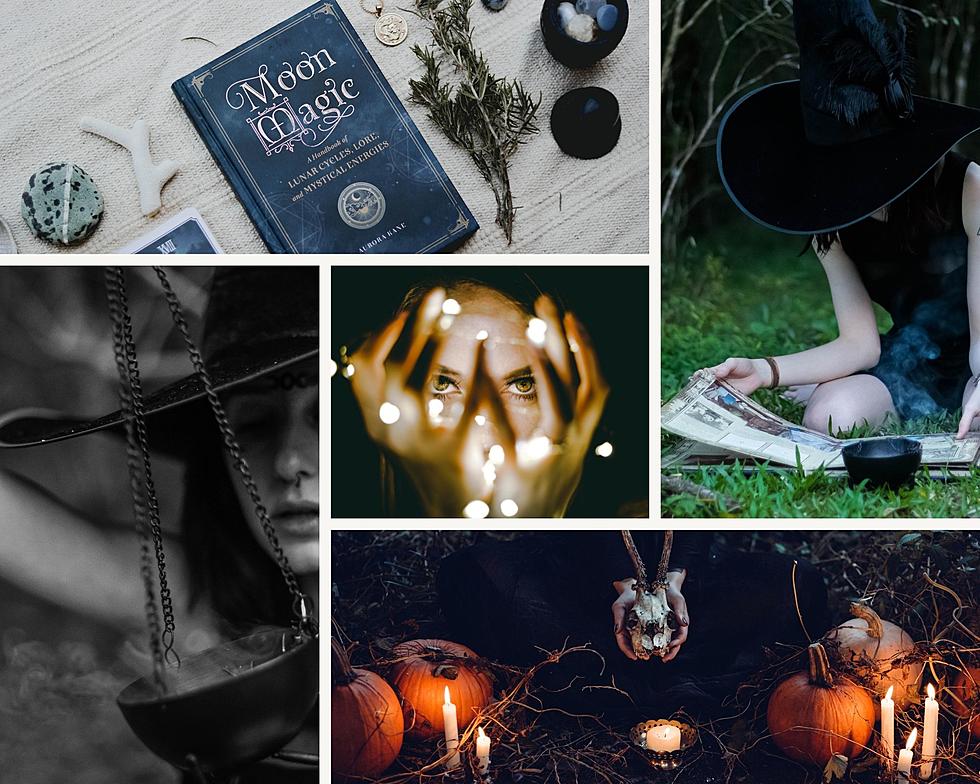
Whether Sweet, Scary, or ‘Evil’–Do You Think REAL Witches and Magic Exist?
Tis the season to discuss all of these spooky things... so I ask ya:
Do you believe there are "real" witches? Were there ever?
What about magic?...or "magick" as any witch may be quick to point out. If they exist, of course.
If you were to take a poll among adults about their most common childhood fears, there's little doubt that the long-feared archetype of the witch would likely emerge on the top ten list of many.
It's no wonder, throughout the ages witches, and women (and men) accused of witchcraft have been blamed for all sorts of ills in the world.
Often these "witches" were simply medicine women, midwives, or those who lived outside of the prescribed social order of their time. In fact, the word witch is thought to have originally meant "wise one."

Pop culture has softened the image of the wicked old witch in various ways. They may be portrayed as evil, yes--such as in the case of The Blair Witch Project for example. But often you see them as either vixen-like temptresses, bewitching and sweet--as it, Bewitched. Or they may even be portrayed as downright silly.
Deagreez
Recently, young adult authors and film and TV producers have sought to captivate new audiences by a modern, hip version of witches. Look no further than the hit shows Charmed or Sabrina, movies such as The Craft, or books like the Harry Potter series.
But what about in "real life?" Are there real witches in our modern, scientific world? Depends on what you mean. But in some contexts, yes.
Recent data taken from the Pew Research Center has revealed that particularly millennials have been contributing to a "renaissance" of older traditions, including witchcraft. Some refer to this as wicca.
Author Amy L. Logan writes in her article 'The World of Wicca,' that "the first thing to understand about contemporary wicca is that it has nothing to do with bubbling cauldrons, satanic worship and summoning demons."
She goes on to discuss that it's much more focused on honoring a feminine essence of the divine along with the masculine. Additionally, there's more focus on the changes of the seasons and the moon phases.
But what about casting spells? Yes. According to practitioners of Wicca, there is spell-casting for things like healing or protection. They may invoke the elements, which include aether (spirit), earth, water, air, and fire.
If you've ever seen the five-pointed star often associated with witchcraft and/or some pagan traditions, or the pentagram, these five elements are what each point of the star represents.
Many members of more mainline modern religions still have much trepidation about those who claim to be witches. Hogan also shares in her article that the "witches" she spoke with said there's no reason to worry. "Most Wiccan holidays are exuberant celebrations embracing the totality of life. Aging, death, and sickness are included, but the nature of the practice is joyful."
Ironically, some of these celebrations are already celebrated as rebranded versions of their origin--for example, New Year's, May Day, and yep...Halloween.
I leave you to your own conclusions. If you want to delve more deeply, feel free to google "modern-day witchcraft." There's a spell-binding amount of information available.
Freaky Flicks: These Are Our Top Halloween Movie Picks
WTF Halloween Inflatables
10 Amusing Halloween Displays You'll See Around Your Neighborhood
More From Mix 93.1









